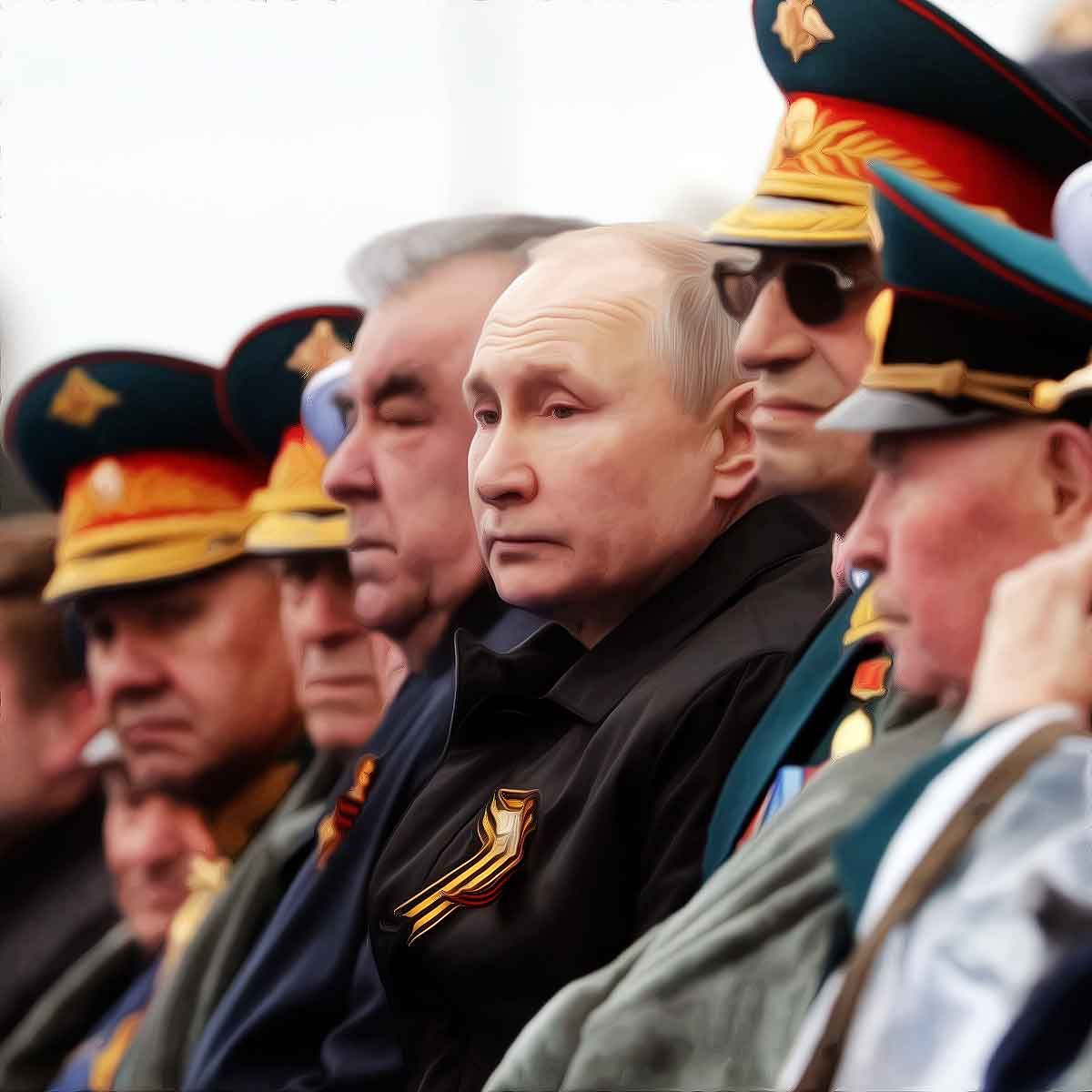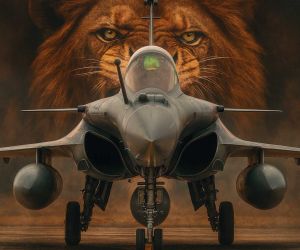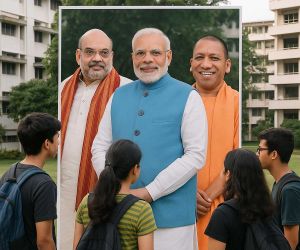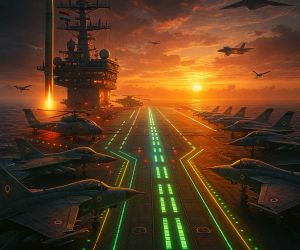MORE COVERAGE
Twitter Coverage
Satyaagrah
Written on
Satyaagrah
Written on
Satyaagrah
Written on
Satyaagrah
Written on
Satyaagrah
Written on
JOIN SATYAAGRAH SOCIAL MEDIA
"The most successful war seldom pays for its losses": Russia claims victory in Ukraine referendums, paves way for annexation, Pro-Moscow officials said all four occupied regions of Ukraine voted to join Russia, but many Western leaders calling it a sham

Kyiv: The Kremlin paved the way Tuesday to annex more of Ukraine and escalate the war by claiming that residents of a large swath overwhelmingly supported joining with Russia in stage-managed referendums the US and its Western allies have dismissed as illegitimate.
|
Pro-Moscow officials said all four occupied regions of Ukraine voted to join Russia. According to Russia-installed election officials, 93% of the ballots cast in the Zaporizhzhia region supported annexation, as did 87% in the Kherson region, 98% in the Luhansk region, and 99% in Donetsk. Possibly explaining the lower favorable vote in Kherson is that Russian authorities there have faced a strong Ukrainian underground resistance movement whose members have killed Moscow-appointed officials and threatened those who considered voting.
In a remark that appeared to rule out negotiations, Ukrainian President Volodymr Zelenskyy told the UN Security Council by video from Kyiv that Russia’s attempts to annex Ukrainian territory will mean “there is nothing to talk about with this president of Russia.”
He added that “any annexation in the modern world is a crime, a crime against all states that consider the inviolability of border to be vital for themselves.”
|
The preordained outcome sets the stage for a dangerous new phase in Russia’s seven-month war, with the Kremlin threatening to throw more troops into the battle and potentially use nuclear weapons.
The referendums asking residents whether they wanted the four occupied southern and eastern Ukraine regions to be incorporated into Russia began on 23 September, often with armed officials going door-to-door collecting votes.
Russian President Vladimir Putin is expected to address Russia’s parliament about the referendums on Friday, and Valentina Matviyenko, who chairs the body’s upper house, said lawmakers could consider annexation legislation on 4 October.
Meanwhile, Russia ramped up warnings that it could deploy nuclear weapons to defend its territory, including newly acquired land, and continued mobilizing more than a quarter-million additional troops to deploy to a front line of more than 1,000 km (more than 620 miles).
After the balloting, “the situation will radically change from the legal viewpoint, from the point of view of international law, with all the corresponding consequences for the protection of those areas and ensuring their security,” Kremlin spokesman Dmitry Peskov said Tuesday.
Many Western leaders have called the referendum a sham, and the UN Security Council met Tuesday in New York to discuss the voting, with the US and Albania planning to introduce a resolution that says the results will never be accepted and that the four regions remain part of Ukraine. Russia is certain to veto the resolution.
|
The balloting and a call-up of Russian military reservists that Putin ordered last Wednesday are aimed at buttressing Moscow’s exposed military and political positions.
The referendums follow a familiar Kremlin playbook for territorial expansion and more aggressive military action. In 2014, Russian authorities held a similar referendum on Ukraine’s the Crimean Peninsula, under the close watch of Russian troops. Based on the voting, Russia annexed Crimea. Putin cited the defense of Russians living in Ukraine’s eastern regions, their supposed desires to join with Russia, and an existential security threat to Russia as a pretext for his 24 February invasion of Ukraine.
Putin has been talking up Moscow’s nuclear option since Ukrainians launched a counteroffensive that reclaimed territory and has increasingly cornered his forces. A top Putin aide ratcheted up the nuclear rhetoric Tuesday.
“Let’s imagine that Russia is forced to use the most powerful weapon against the Ukrainian regime that has committed a large-scale act of aggression, which is dangerous for the very existence of our state,” Dmitry Medvedev, deputy head of the Russian Security Council that Putin chairs, wrote on his messaging app channel. “I believe that NATO will steer clear from direct meddling in the conflict.”
The United States has dismissed the Kremlin’s nuclear talk as a scare tactic.
The referendums asked residents whether they want the areas to be incorporated into Russia, and the Kremlin has portrayed them as free and fair, reflective of the people’s desire for self-determination.
Tens of thousands of residents had already fled the regions because of the war, and images shared by those who remained showed armed Russian troops going door-to-door to pressure Ukrainians into voting.
Mariupol Mayor Vadym Boychenko, who left the port city after the Russians seized it after a months-long siege, said only about 20% of the 100,000 estimated remaining residents cast ballots in the Donetsk referendum. Mariupol’s pre-war population was 541,000.
“A man toting an assault rifle comes to your home and asks you to vote, so what can people do?” Boychenko asked during a news conference, explaining how people were coerced into voting.
Western allies sided firmly with Ukraine, dismissing the referendum votes as a meaningless sham.
|
British Foreign Secretary James Cleverly said the ballots were “a desperate move” by Putin. French Foreign Minister Catherine Colonna said while visiting Kyiv on Tuesday that France was determined “to support Ukraine and its sovereignty and territorial integrity” and described the ballots as “mock referendums.”
Elsewhere, trouble emerged for Putin in the mass call-up he ordered of Russians to active military duty.
The order has triggered an exodus of nearly 200,000 men from Russia, fueled anti-war protests, and sparked violence. On Monday, a gunman opened fire in an enlistment office in a Siberian city and gravely wounded the local chief military recruitment officer. Scattered arson attacks had been reported earlier on other enlistment offices.
One destination of fleeing Russian men is Kazakhstan, which reported Tuesday that about 98,000 Russians have crossed into Kazakhstan over the past week.
The European Union’s border and coast guard agency says 66,000 Russian citizens entered the 27-nation bloc from 19 to 25 September, a 30% increase over the preceding week.
Russian officials tried to intercept some of the fleeing reservists on one of the main exodus routes, issuing conscription notices on the Georgian border. According to the state-run Tass agency, an enlistment task force was handing out notices at the Verkhnii Lars checkpoint, where an estimated 5,500 cars were lining up to cross.
Independent Russian news sources have reported unconfirmed claims that draft-age men will be banned from leaving after the referendum.
As Moscow worked to build up its troops in Ukraine, potentially sending them to supplement its proxies who have been fighting in the separatist regions for the past eight years, Russian shelling continued to claim lives.
Russian barrages killed at least 11 civilians and wounded 18 in 24 hours, Ukraine’s presidential office said Tuesday.
In other developments, Ukrainian authorities reported more success in their counteroffensive to reclaim territory in some of the very regions where Russia is staging the referendums to consolidate its grip.
Ukrainian troops claimed to continue their push beyond the Oskil River in the country’s east, pressing further into the Donbas. A video on social media Tuesday showed Ukrainian soldiers entering the village of Koroviy Yar, 15 kilometers (about 9 miles) from the river. Ukraine’s military intelligence said that the country’s forces continued to force Russian troops out of the northeastern Kharkiv region and claimed to recapture the major railway junction of Kupyansk-Vuzlovyi.
The war’s human toll was also reflected in a UN human rights monitoring mission’s first comprehensive look at violations and abuses Russia and Ukraine committed between 1 February and 31 July, the first five months of Russia’s invasion.
Matilda Bogner, the mission’s chief, said Ukrainian prisoners of war appeared to have faced “systematic” mistreatment, “not only upon their capture but also following their transfer to places of internment” in Russian-controlled areas of Ukraine and Russia itself.
The war has brought an energy crunch for much of Western Europe, with German officials seeing the disruption of Russian supplies as a Kremlin power play to pressure Europe over its support for Ukraine.
The danger to energy supplies grew when seismologists reported Tuesday that explosions rattled the Baltic Sea before unusual leaks were discovered on two underwater natural gas pipelines running from Russia to Germany.
Some European leaders and experts pointed to possible sabotage during an energy standoff with Russia provoked by the war in Ukraine. The three leaks were reported on the Nord Stream 1 and 2 pipelines, which are filled with natural gas but not delivering the fuel to Europe.
The damage means that the pipelines are unlikely to be able to carry any gas to Europe this winter even if the political will to bring them online emerged, analysts at the Eurasia Group said.
References:
 Support Us
Support Us
Satyagraha was born from the heart of our land, with an undying aim to unveil the true essence of Bharat. It seeks to illuminate the hidden tales of our valiant freedom fighters and the rich chronicles that haven't yet sung their complete melody in the mainstream.
While platforms like NDTV and 'The Wire' effortlessly garner funds under the banner of safeguarding democracy, we at Satyagraha walk a different path. Our strength and resonance come from you. In this journey to weave a stronger Bharat, every little contribution amplifies our voice. Let's come together, contribute as you can, and champion the true spirit of our nation.
 |  |  |
| ICICI Bank of Satyaagrah | Razorpay Bank of Satyaagrah | PayPal Bank of Satyaagrah - For International Payments |
If all above doesn't work, then try the LINK below:
Please share the article on other platforms
DISCLAIMER: The author is solely responsible for the views expressed in this article. The author carries the responsibility for citing and/or licensing of images utilized within the text. The website also frequently uses non-commercial images for representational purposes only in line with the article. We are not responsible for the authenticity of such images. If some images have a copyright issue, we request the person/entity to contact us at This email address is being protected from spambots. You need JavaScript enabled to view it. and we will take the necessary actions to resolve the issue.
Related Articles
- "We won’t be able to evacuate American citizens if Russia attacks Ukraine" says President Biden: US Govt authorizes departure of govt employees from Ukraine amid escalating tensions
- The tension between Russia and Ukraine has raised concerns world over of possible invasion by Russia on Ukrainian soil and the US has started supplying military aid to Russia’s neighbouring nation: Let's dig up some details
- "Zara ahista mar tamacha-e-zindagi, Chehre pe nishaan dikhne lage hain": Russian court fined $374 million to American search giant Google for its failure to delete prohibited information on conflict in Ukraine, ask to remove all “misleading information”
- Haunting history- 50 years of Operation Searchlight in Dhaka
- "Unity in strategy, strength in partnership": Amid China's rising influence in the Indo-Pacific, Germany strengthens military relations with 'reliable' India, eyeing secure trade routes and strategic collaborations while stepping up military ties
- "Greed's frontier: The harsh truth of expansionism": Amid the furore over China releasing a new map, Ex-Chief of Army Staff General Manoj Naravane shared a map of China and took a dig saying "finally someone has got the map of China as it really is"
- "War is costly, peace is priceless": India's pivotal role in BRICS is shaping the narrative amid Ukraine crisis, championing dialogue and diplomacy, its influence in fostering global harmony is becoming increasingly evident on the international stage
- China's 39 Air Force aircraft breached the air defence zone of Taiwan on Sunday as the largest incursion in Taiwanese territory since Oct 2021: Aggression of Communist regime continues
- "There is no path to peace. Peace is the path": NSA Ajit Doval's arrival in Jeddah represents India's commitment to dialogue and diplomacy, his belief - a peaceful resolution to the Ukraine conflict - remains India's utmost priority and greatest desire
- "Don’t be mad at the mirror if you are ugly": Russian energy giant Gazprom and National Iranian Oil Company signed a $40-billion MOU on President Putin visit, West sanctions tried to limit funding to Russia that might be used for war against Ukraine
- “As you know, madness is like gravity...all it takes is a little push”: Latest of Vogue magazine featuring a glossy photoshoot of Ukrainian President Vladimir Zelensky with wife Alena elicited a harsh reaction online amid the military conflict with Russia
- "Past lessons, future cautions": As global leaders dance delicately with nuclear words, the looming shadow of today's 'mushroom cloud' is a power beyond imagination, Modern hydrogen bombs bear a potency that could overshadow Hiroshima's dark past
- "New witness testimony raises serious questions about Western media ethics": A key witness to the widely publicized incident at the Mariupol maternity hospital ‘airstrike' punctured the official narrative of a Russian airstrike on the facility
- Under Taliban rule: Humanitarian catastrophe escalating rapidly in Afghanistan, Hunger forces Afghans to sell young daughters into marriage to ensure the survival of the rest of the family members
- Taiwan govt has decided to open up its National archives to study and rediscover the legacy of Netaji Subash Chandra Bose: Deputy representative Mumin Chen said that Netaji has had a huge influence over Taiwan in the 1930s and 40s

























